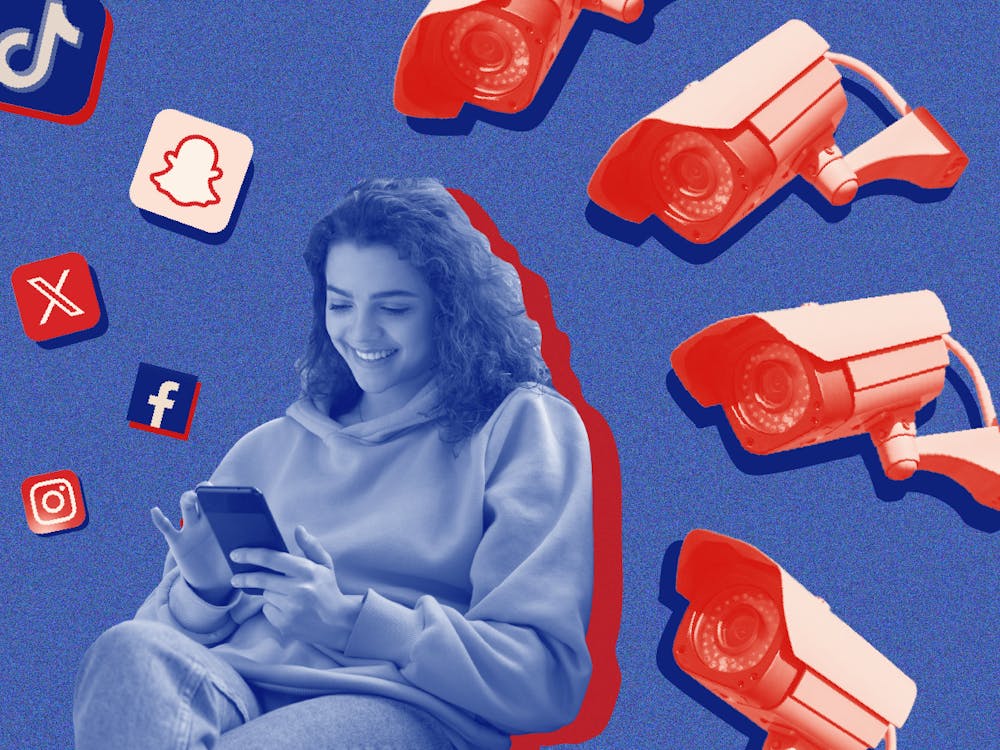Read more from The Alligator's "Ripple Effects" special section here.
Social media surveillance is now a matter of national security.
After a three-week suspension in May, international student visa appointments resumed on June 19 — this time, with new regulations from the U.S. Department of Homeland Security.
A change in protocol now requires all student visa applicants to disclose their social media accounts for review. According to the U.S. Embassy, the evaluation aims to identify applicants who are inadmissible to the country, including those deemed a threat to national security for reasons including support or endorsement of antisemetic ideologies and terrorism.
Applicants must make all social media accounts public and list every username or account handle they’ve used over the past five years on the visa application form, according to the embassy. International university students, including those at UF, say the change is fueling anxiety throughout their communities.
Carlos Burgos, an immigration attorney with Burgos & Van Browne Law Firm based in Miami, said the DHS has “total and absolute discretion” in reviewing applicants’ social media.
Social media reviews come partly in response to pro-Palestinian protests at several universities in Spring 2024, he said.
Such regulations risk limiting free speech among student visa applicants, Burgos said. Because of government monitoring, he added, people are now afraid to speak freely in ways that might affect their immigration status.
“People will stop sharing their opinions, which doesn’t nourish the exchange of ideas in this country,” Burgos said.
Social media screening for student visa applicants has also sparked concern within the UF student body.
Carmen Galván-Cuevas, a 20-year-old political science major at UF and a U.S. citizen, said the monitoring of visa applicants’s social media profiles makes her uneasy.
“It makes me think we’re choosing international students based on their beliefs,” she said.
The requirement has also drawn criticism for slowing down the visa process. An 18-year-old UF biomedical engineering freshman, who is a Colombian international student, said delays are still having a visible impact. The student asked to remain anonymous over the fear that his visa could be jeopardized.
“A friend was told he’d get his visa in two weeks, but it’s been over a month,” the student said. His friend didn’t receive the visa in time to start the Fall semester at UF, which forced him to begin classes in the Spring, he added.
U.S. citizens also worry that if the government can impose such rules on visa applicants, citizens’s rights could eventually be at risk.
Kelly Ho, an 18-year-old UF statistics sophomore and U.S. citizen, said screening international students’ social media is “un-American.”
“One of the principles the U.S. was founded on is freedom of ideas, beliefs and religion,” Ho said. “And this goes against that.”
Derek Bambauer, a UF law professor specializing in cybersecurity, also weighed in on the privacy rights of visa applicants.
Through social media monitoring, he said border authorities are making visa applicants and international students fearful of expressing negative views toward the government.
The bigger issue lies in censorship, not in online surveillance, Bambauer added.
“What’s unfortunate is that the government has found a clever way to sidestep the First Amendment,” he said. “They can’t outright ban speech…but they can attach very unpleasant consequences to it.”
These tactics reflect strategies used in the Cold War Era, where officials censored certain ideas by claiming they threatened national security, Bambauer said. Any criticism of the U.S. government or ties to leftist movements were enough to flag someone as a traitor to the country.
Bambauer said the comparisons are already writing themselves.
“We’re already seeing fragments of this in the pressure placed on online content and internet platforms today,” he said.
Contact Sofia Alamo at salamo@alligator.org. Follow her on X @alamosofiaa.

Sofia Alamo is a Sports Journalism freshman at UF and the university’s Women’s Tennis beat reporter. Her favorite sports are soccer and tennis, and she aspires to be a sports broadcaster in the future.






